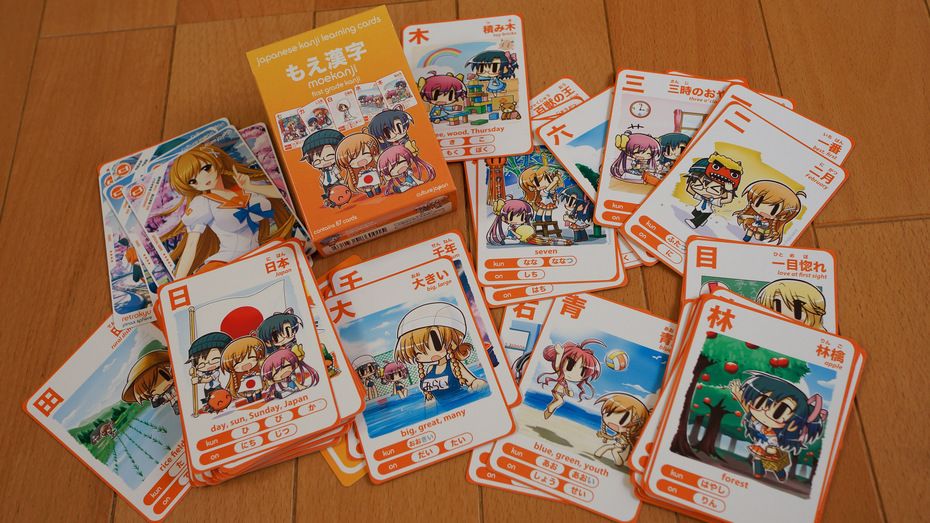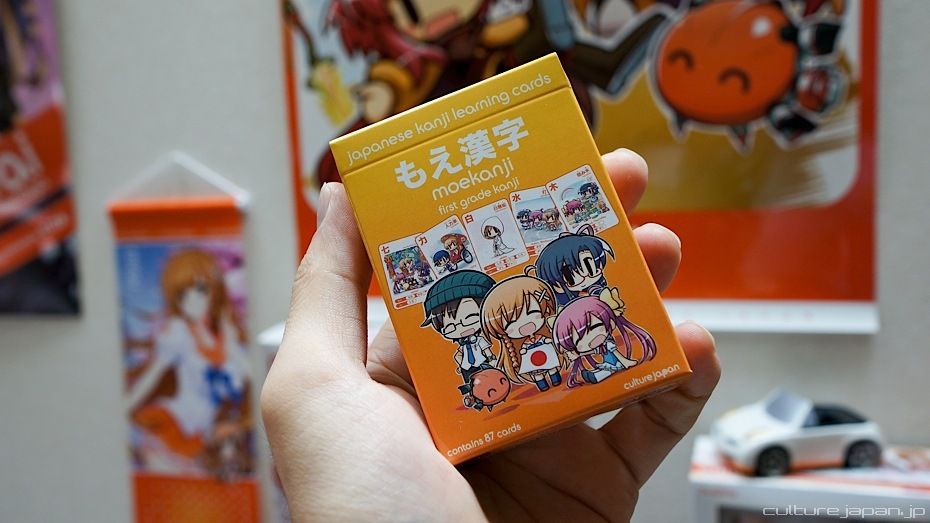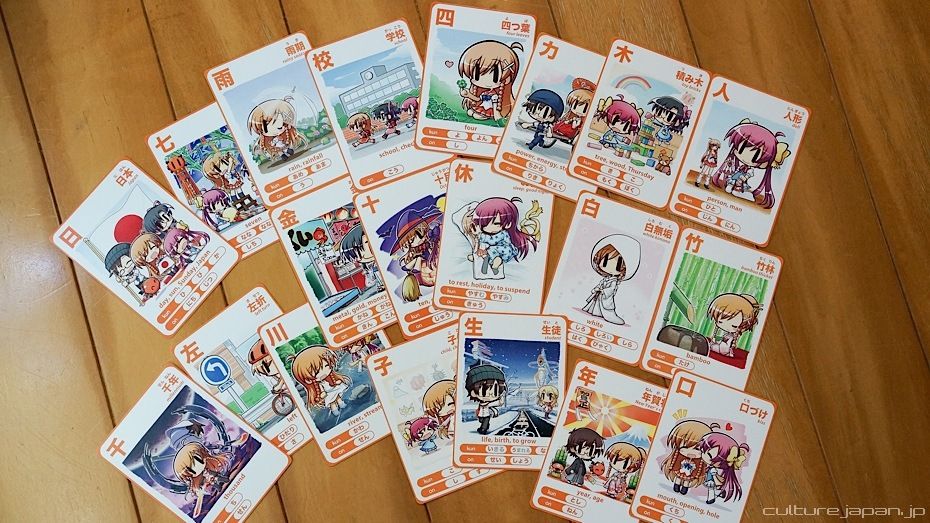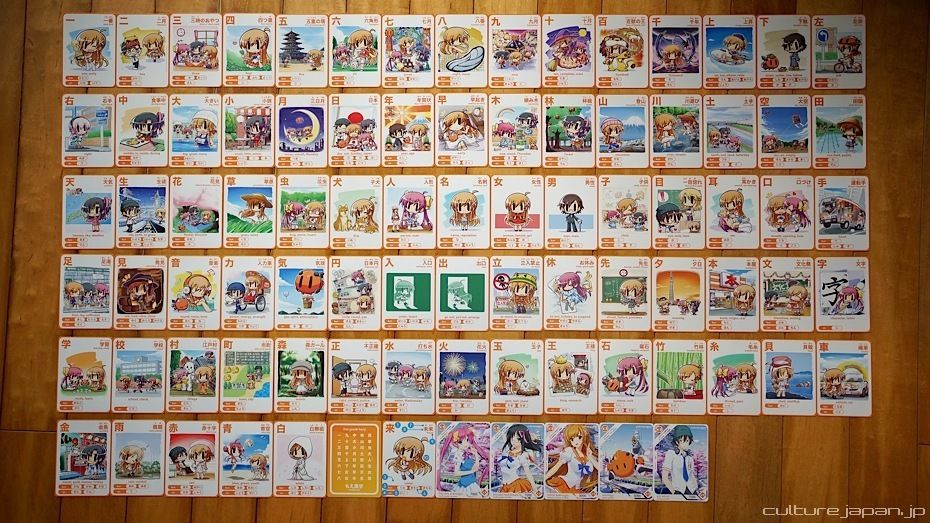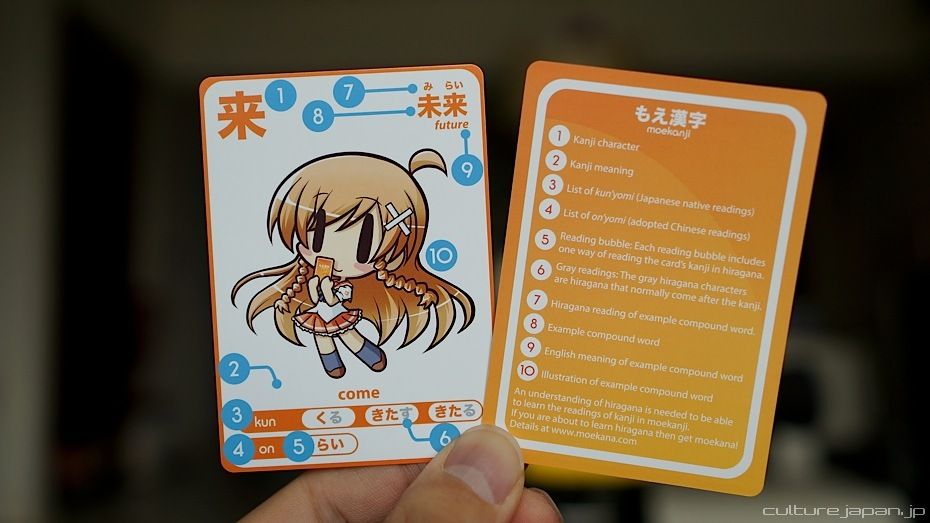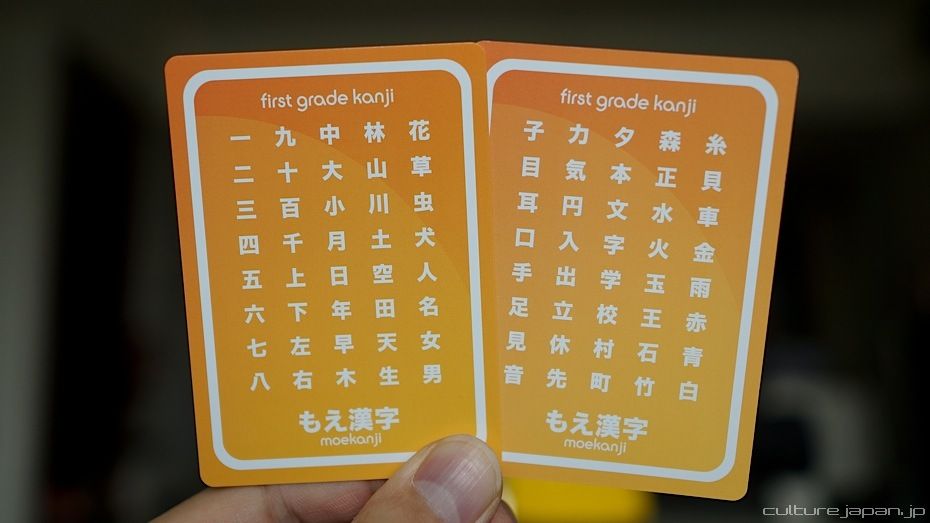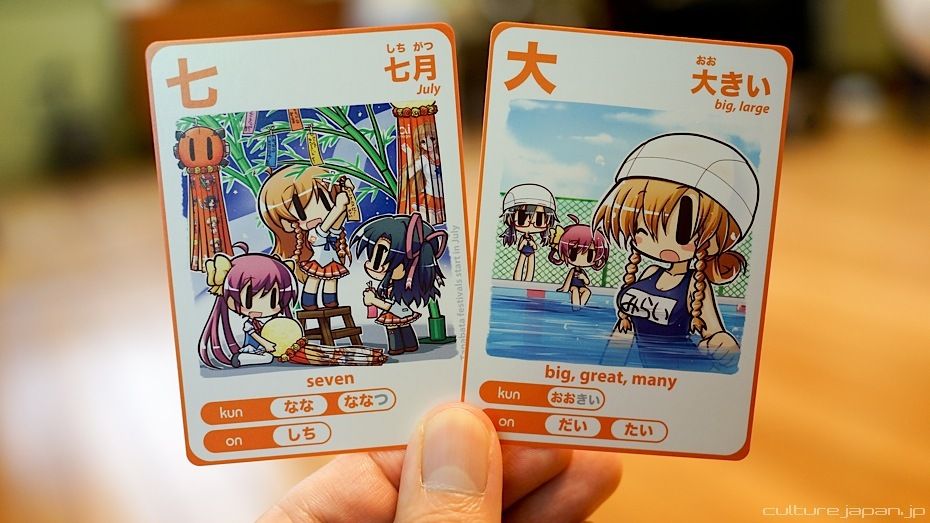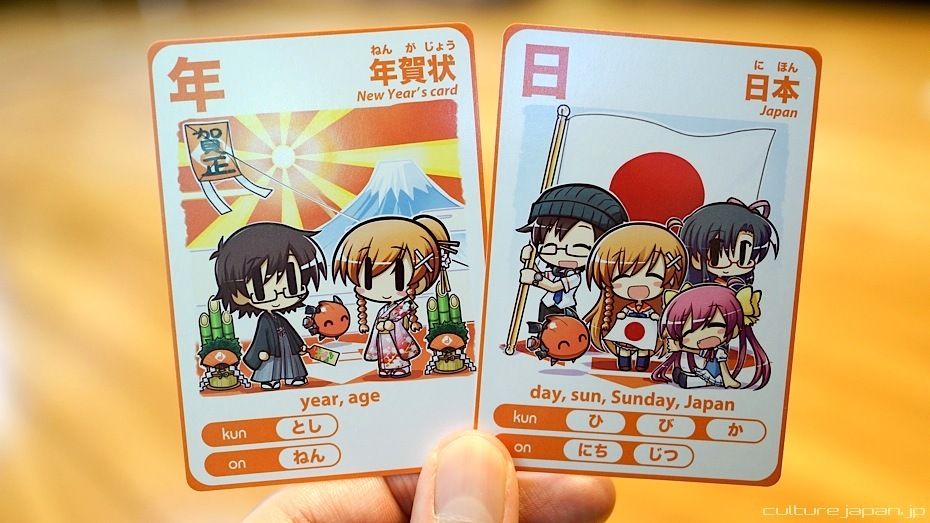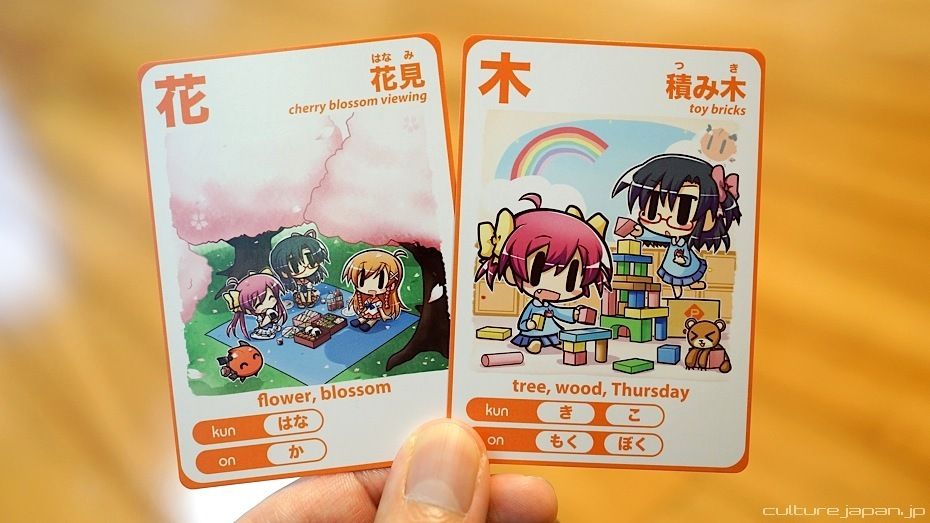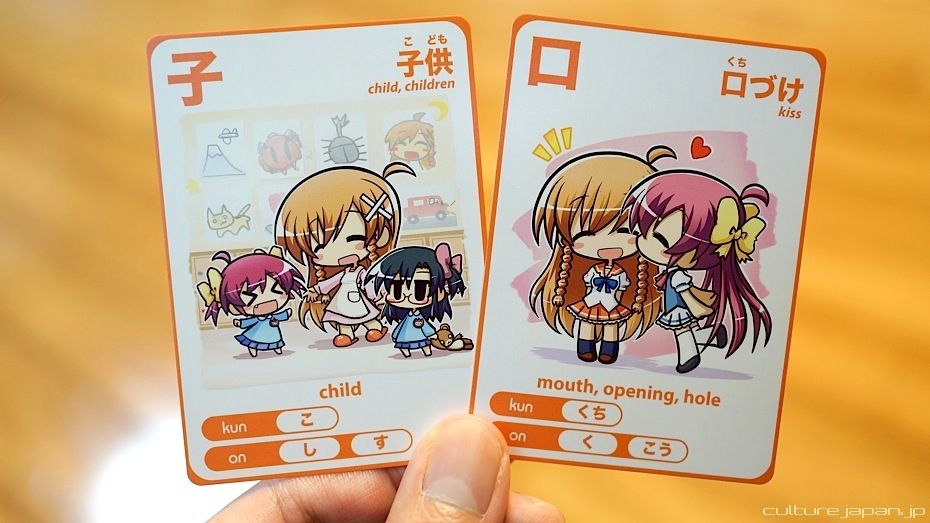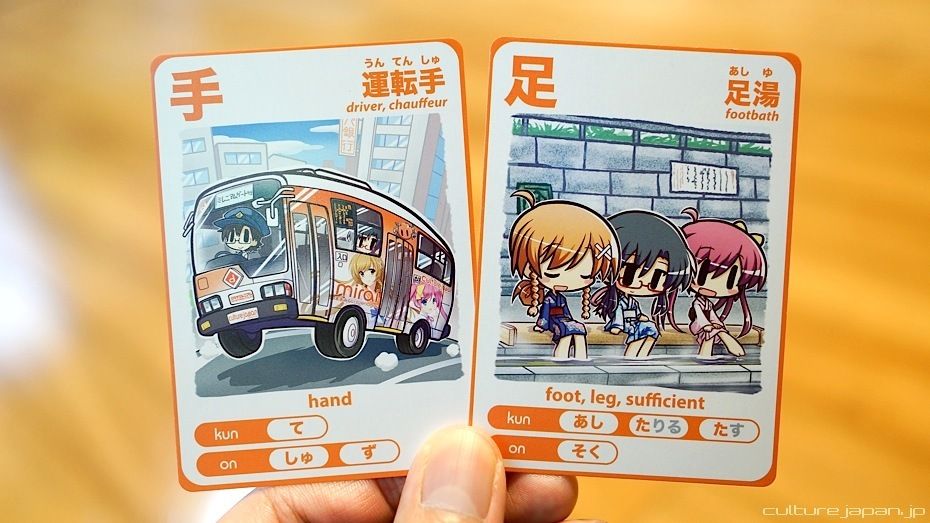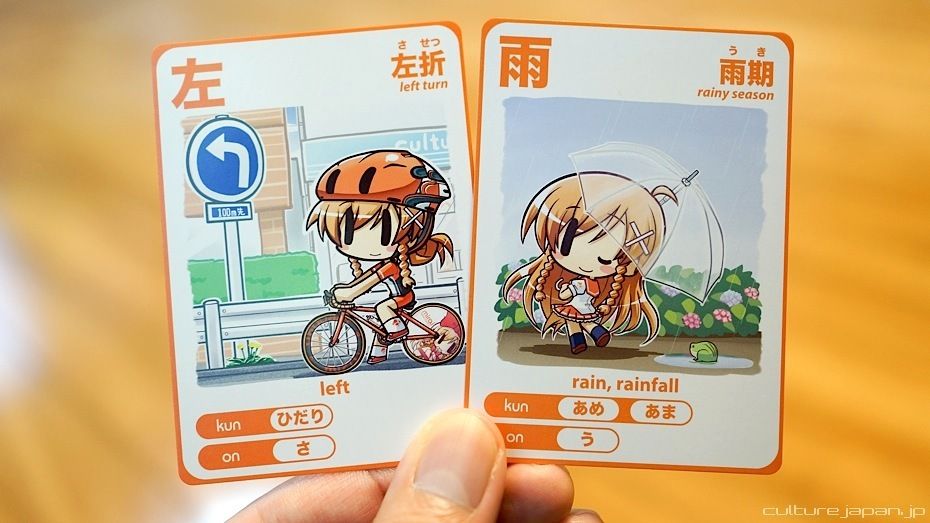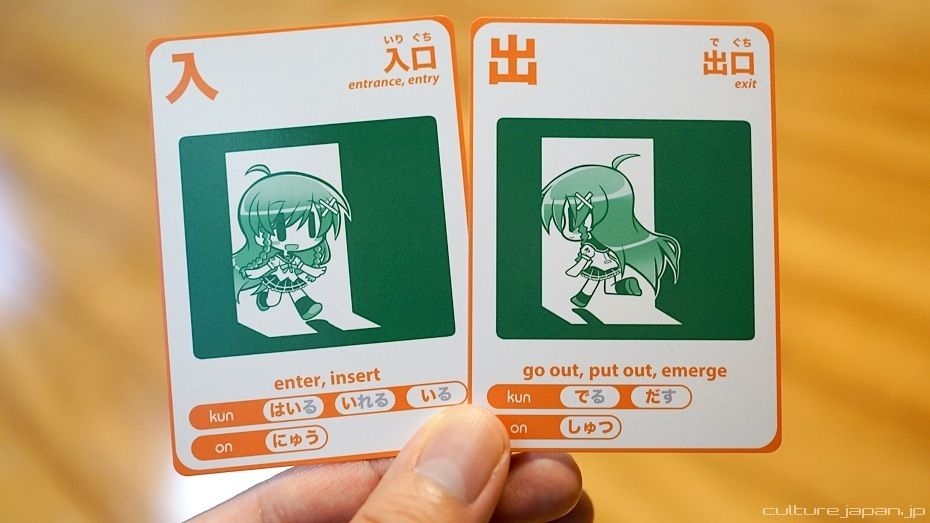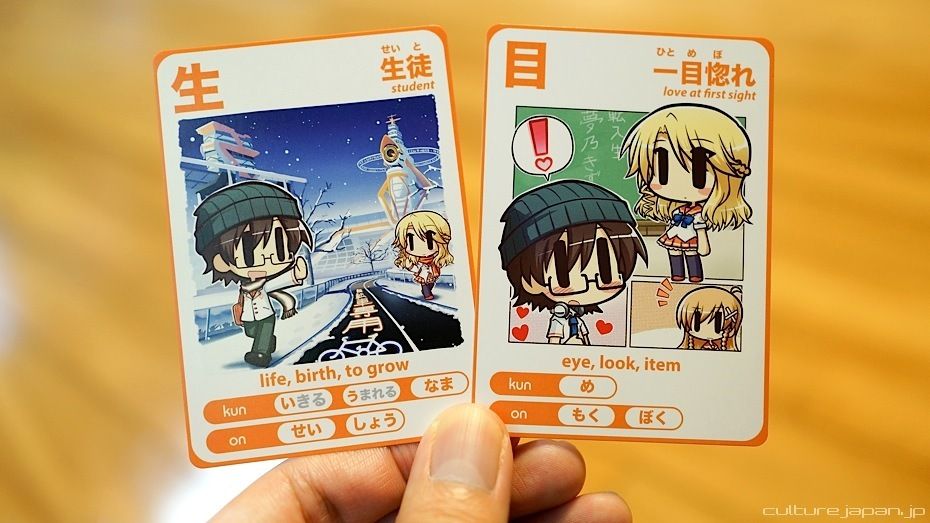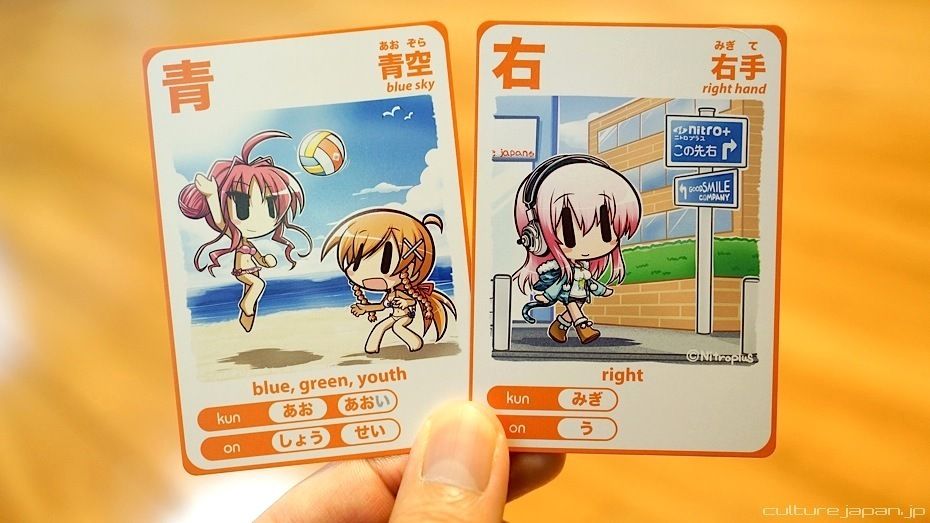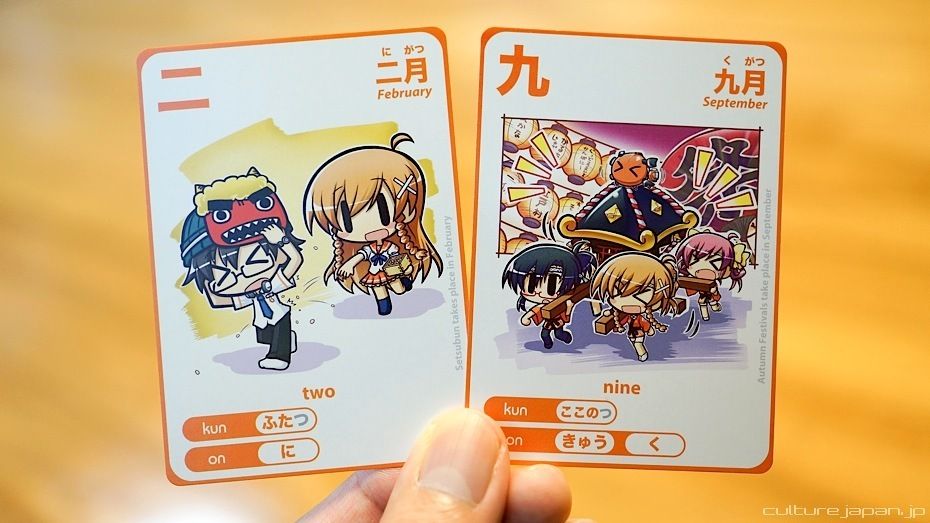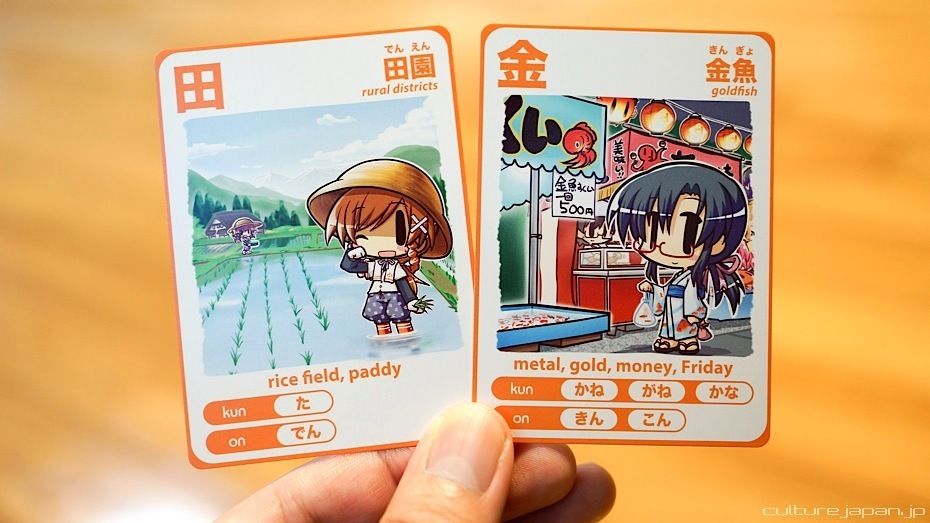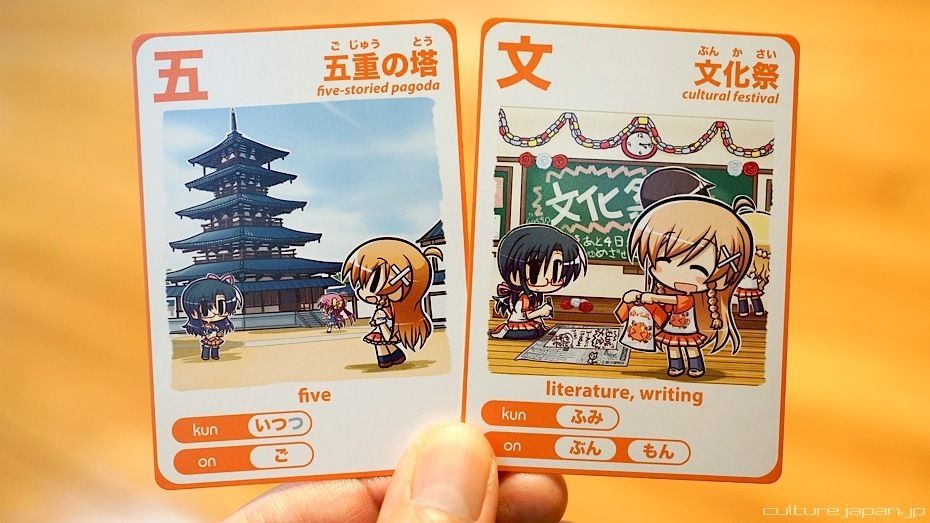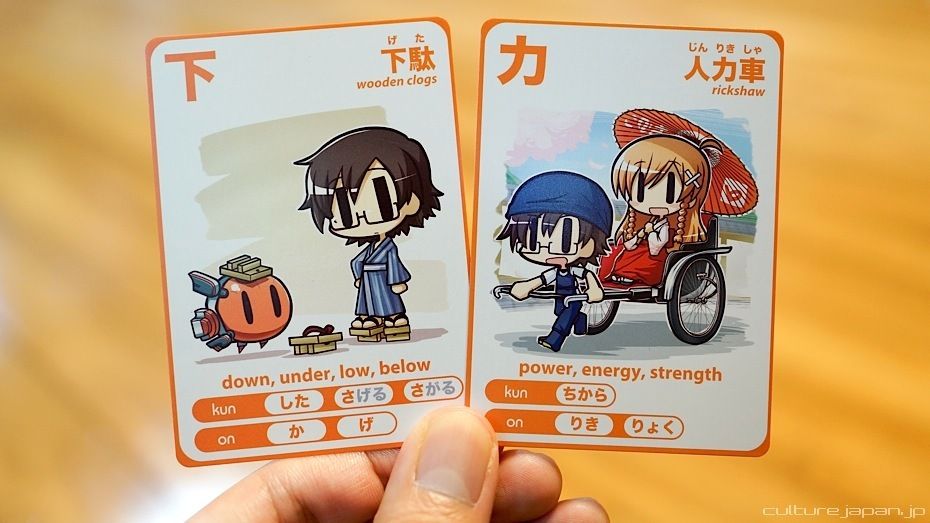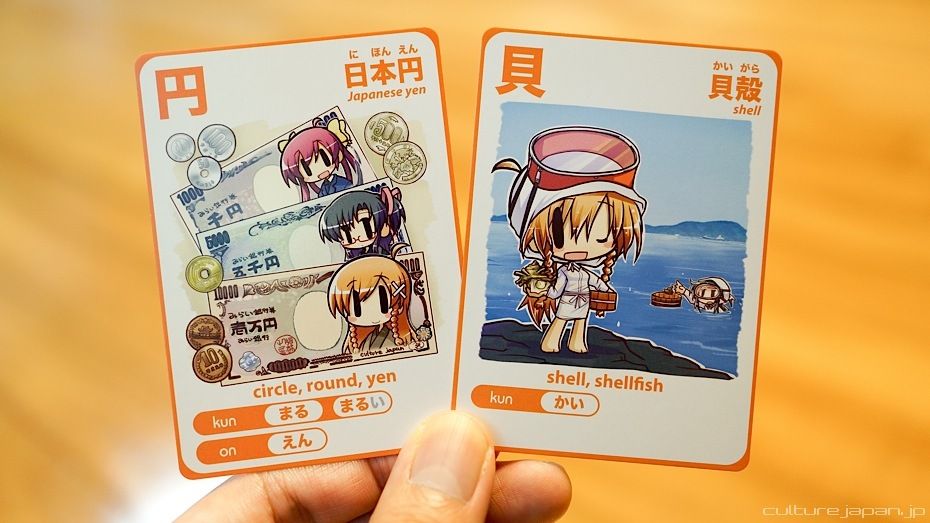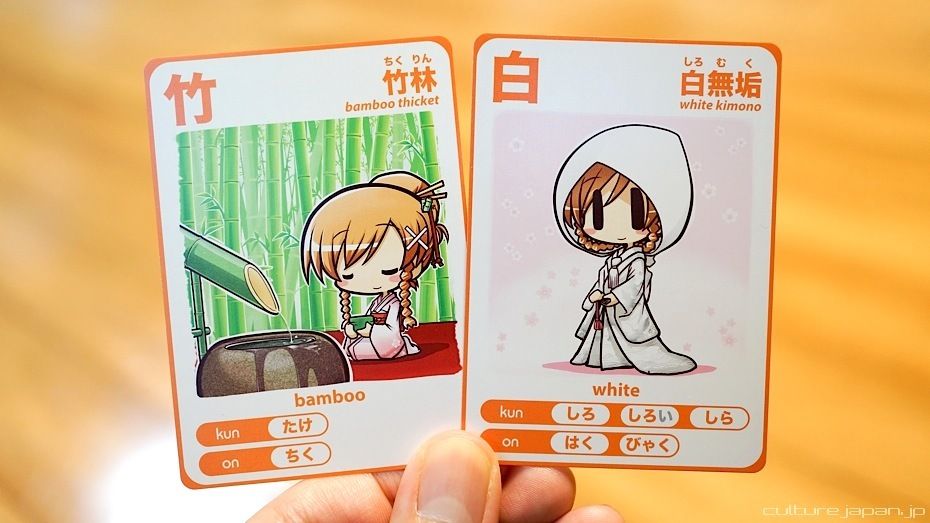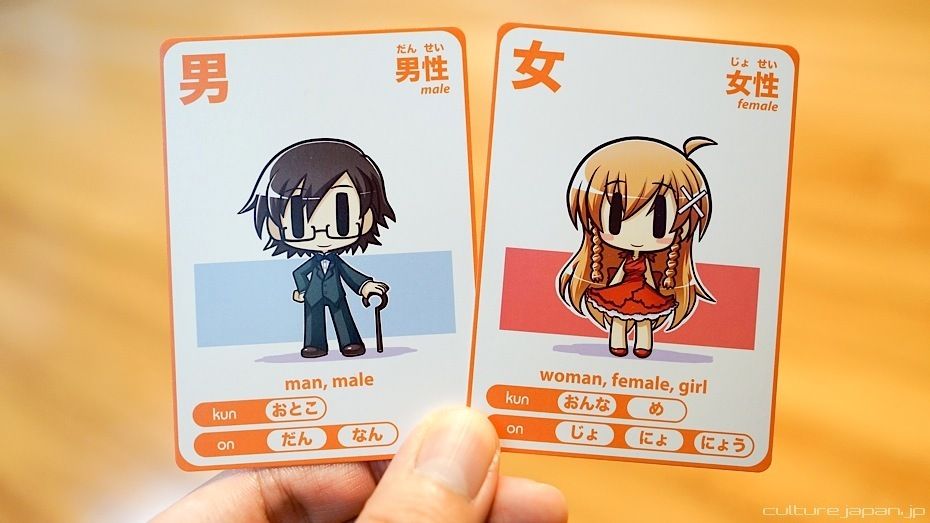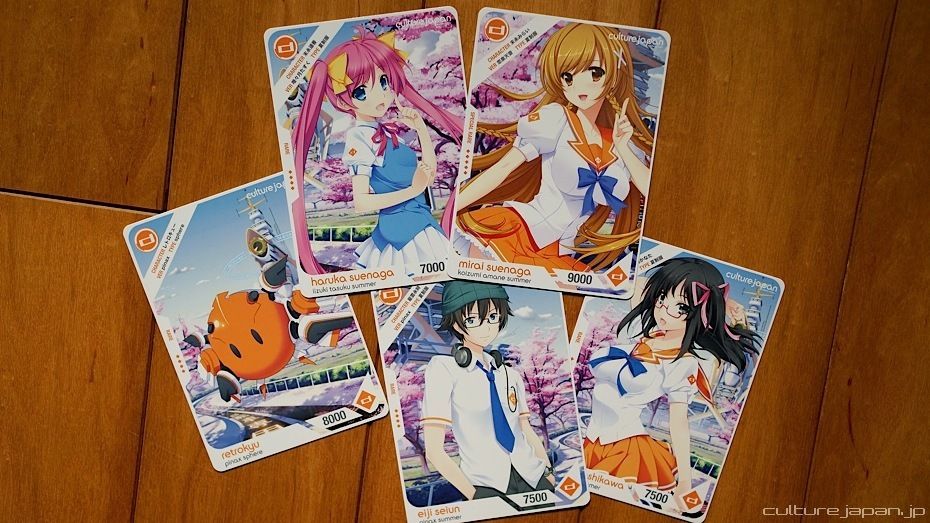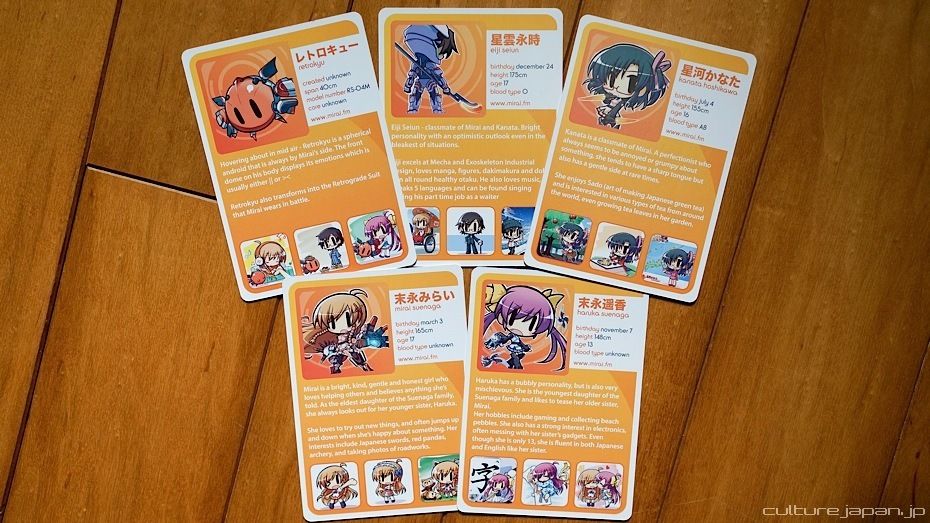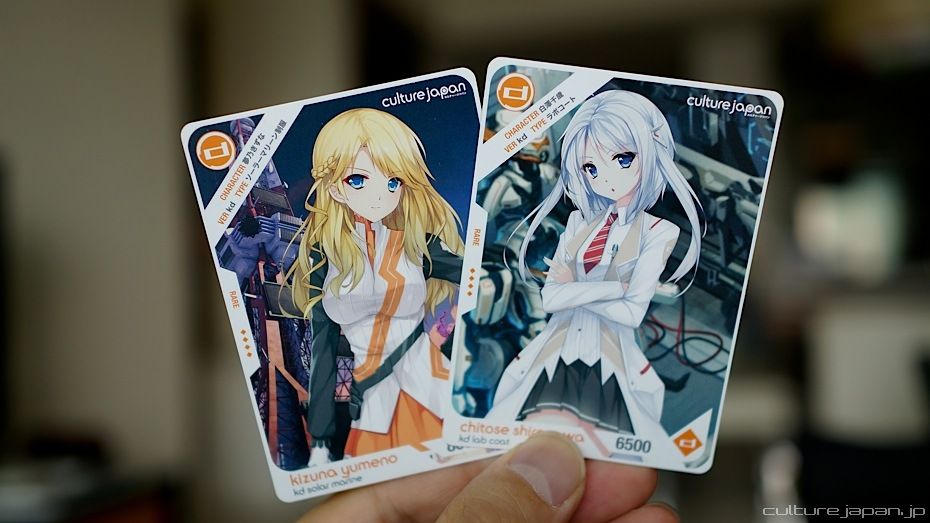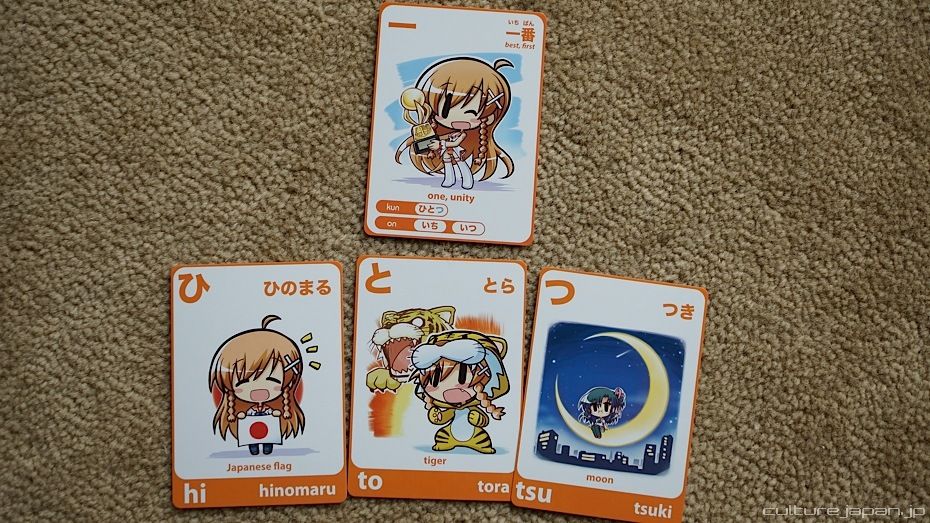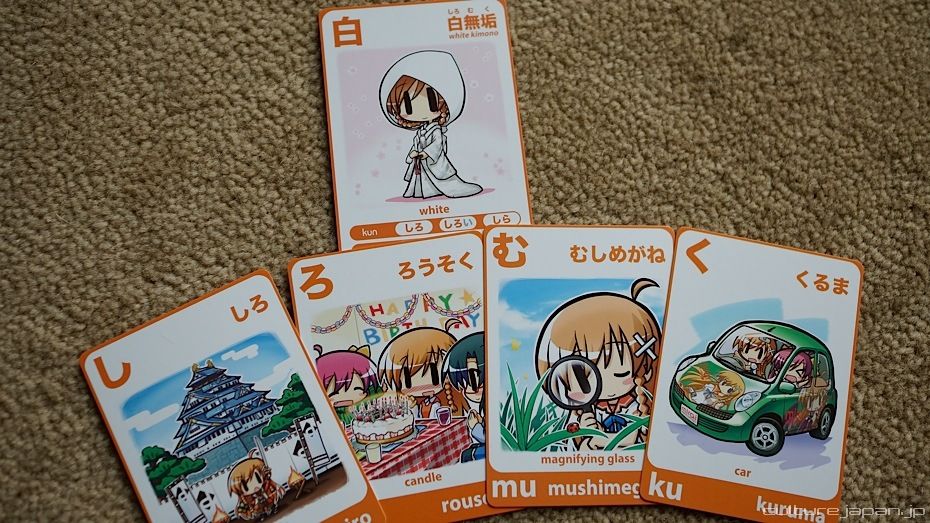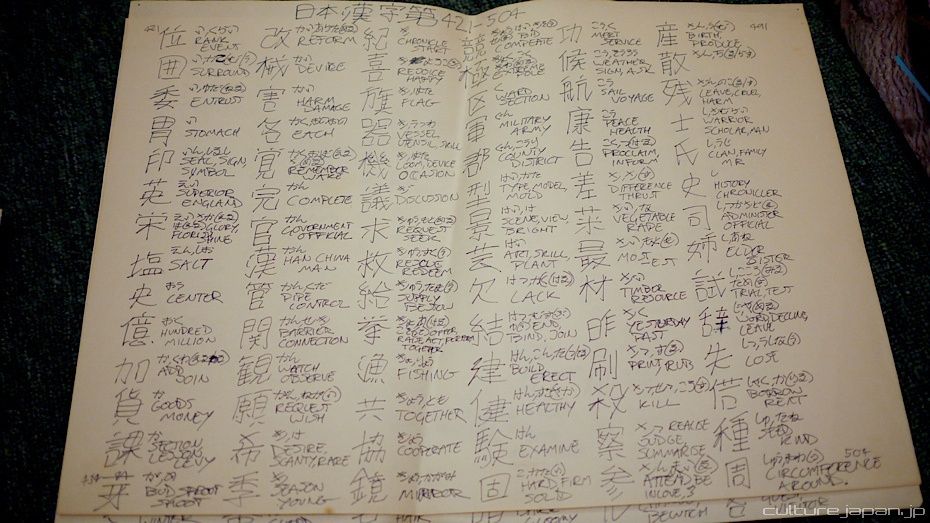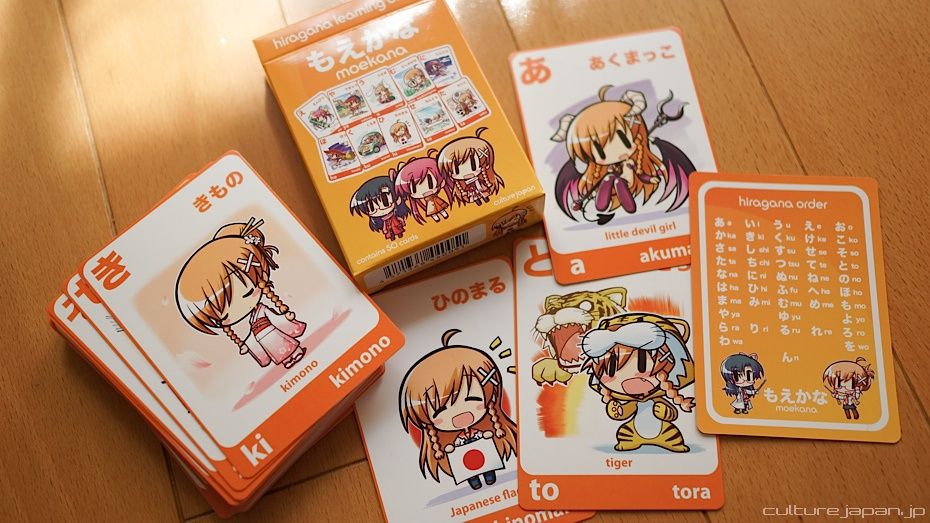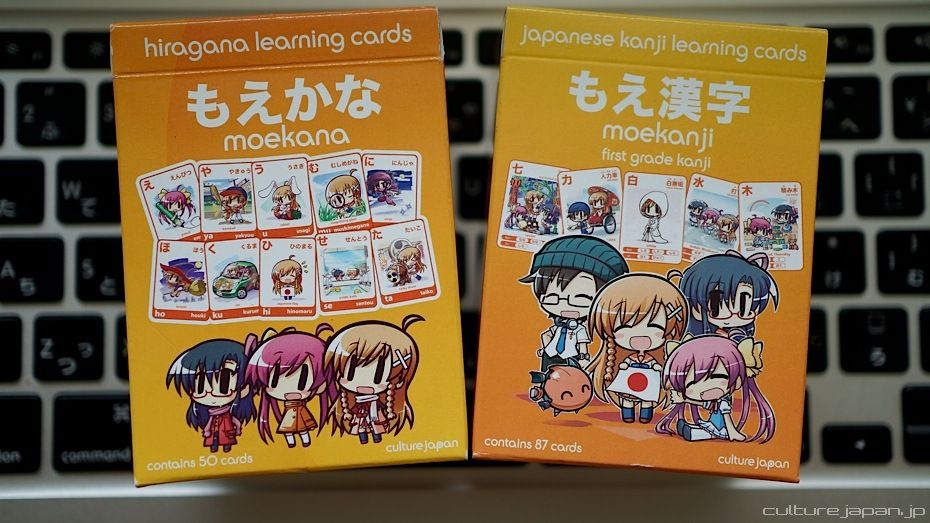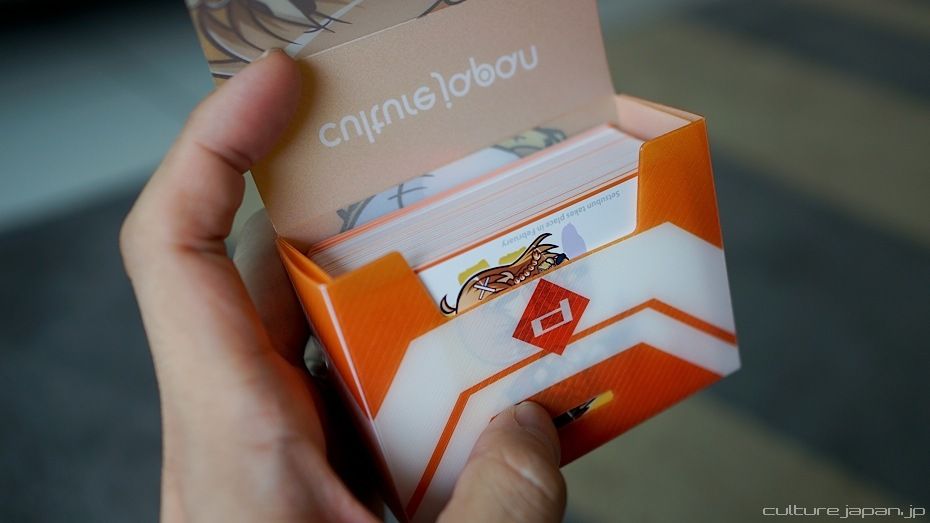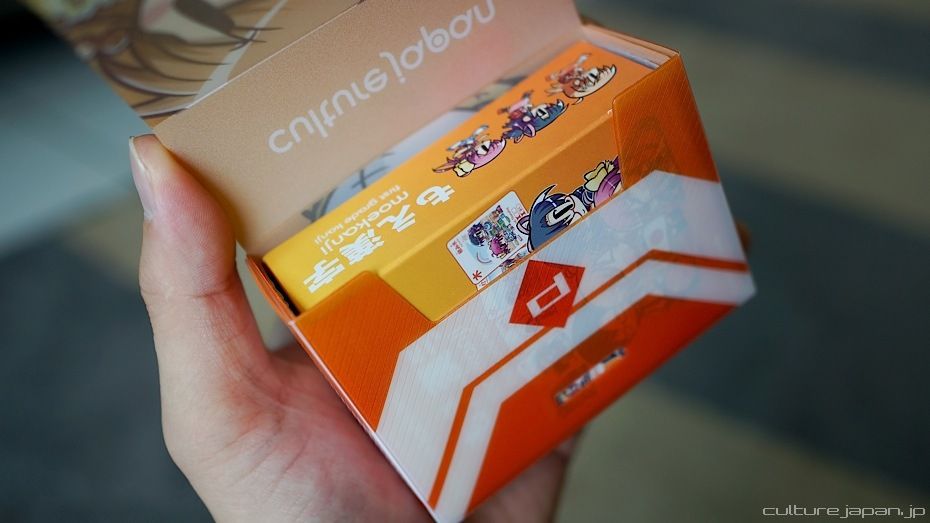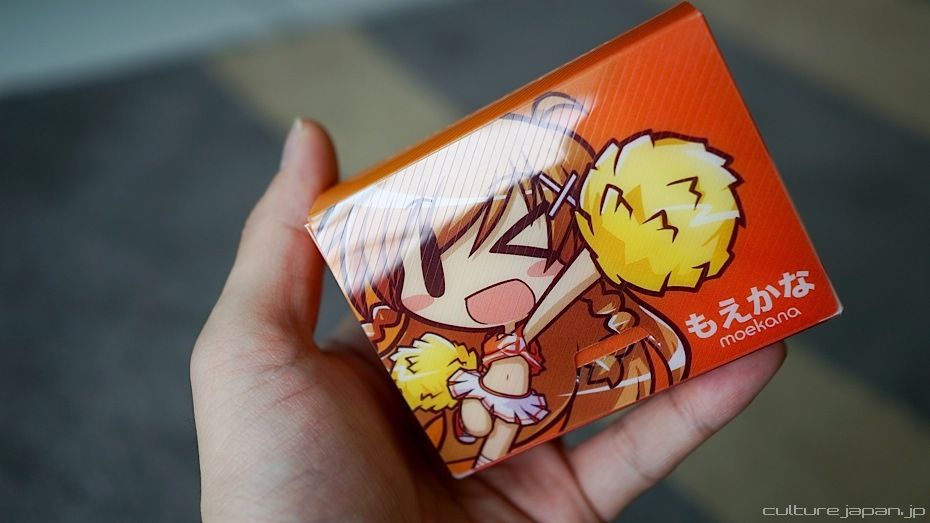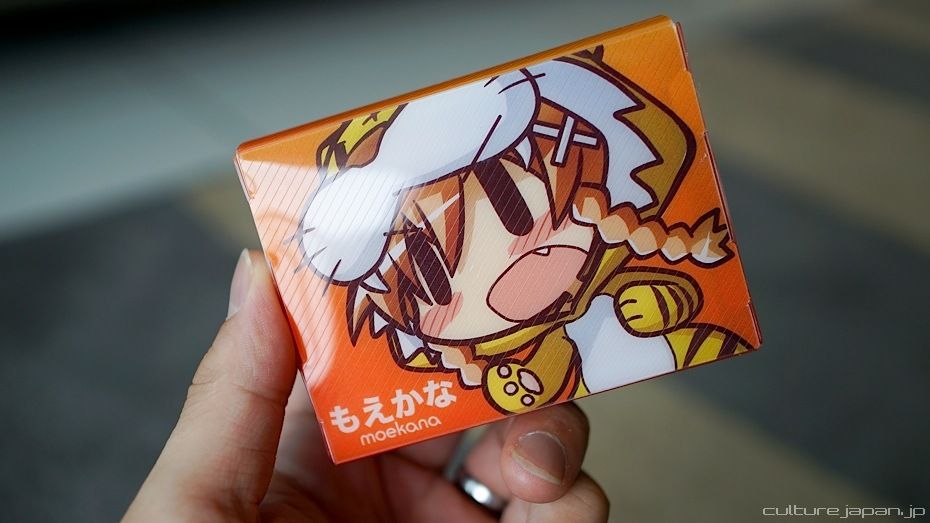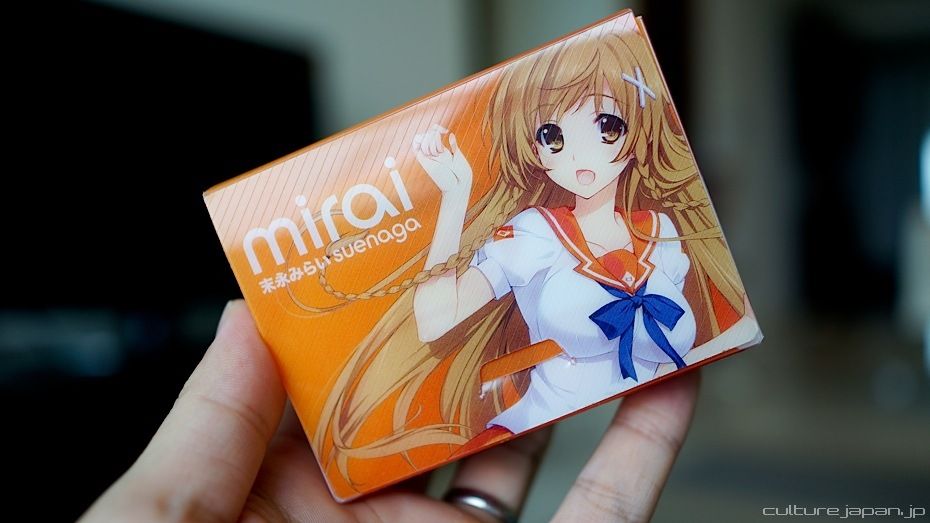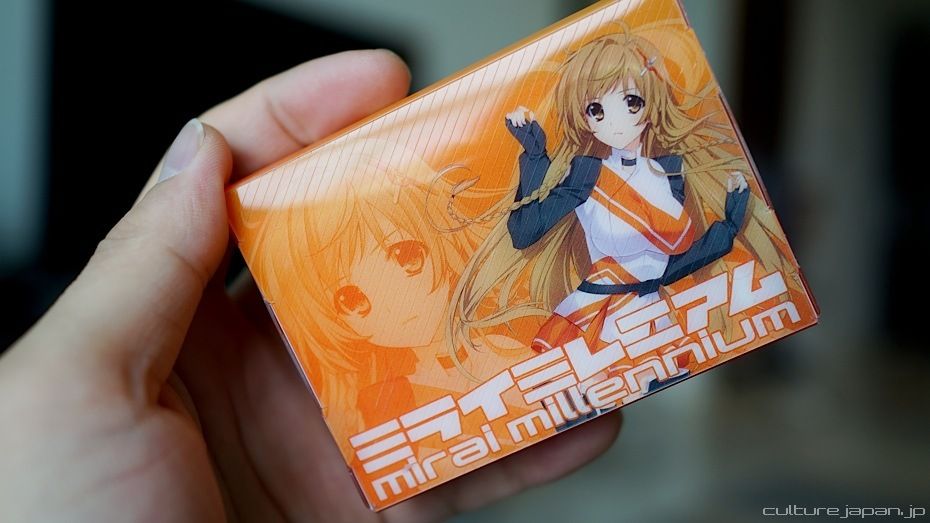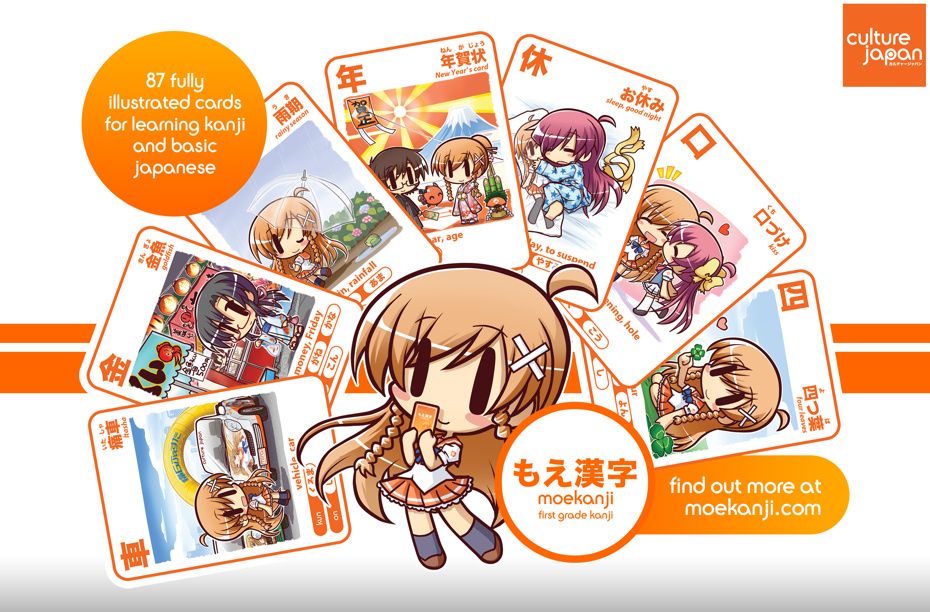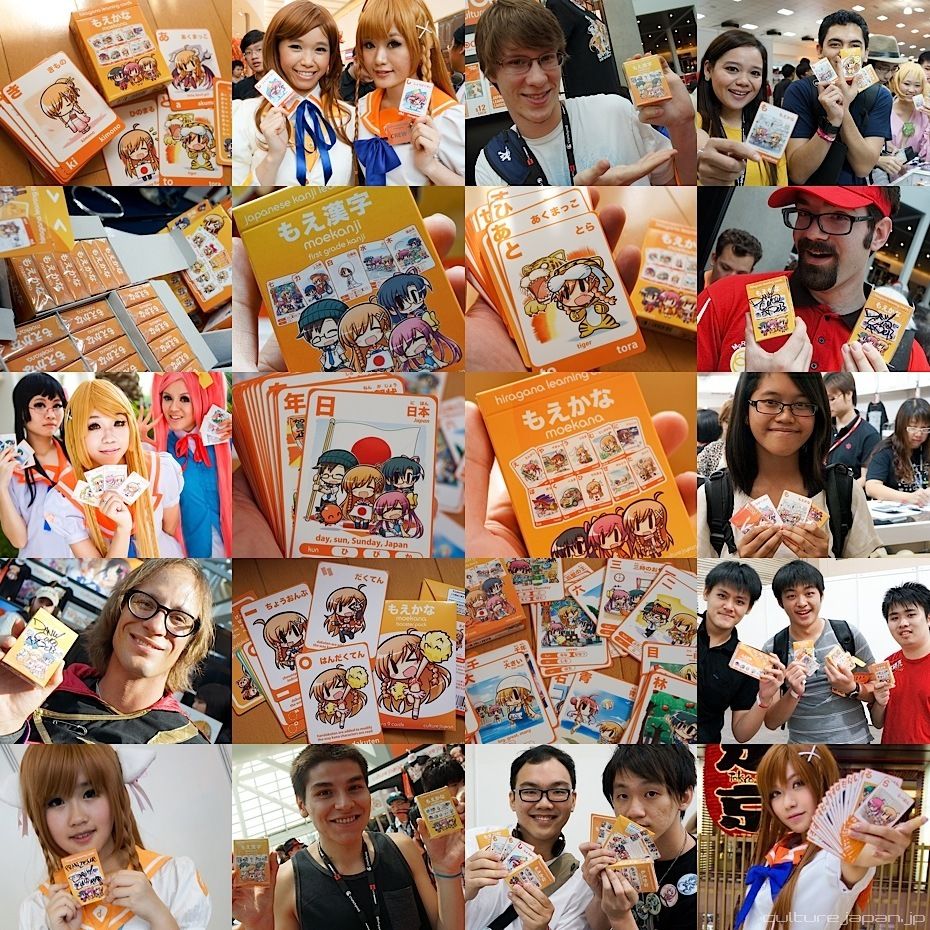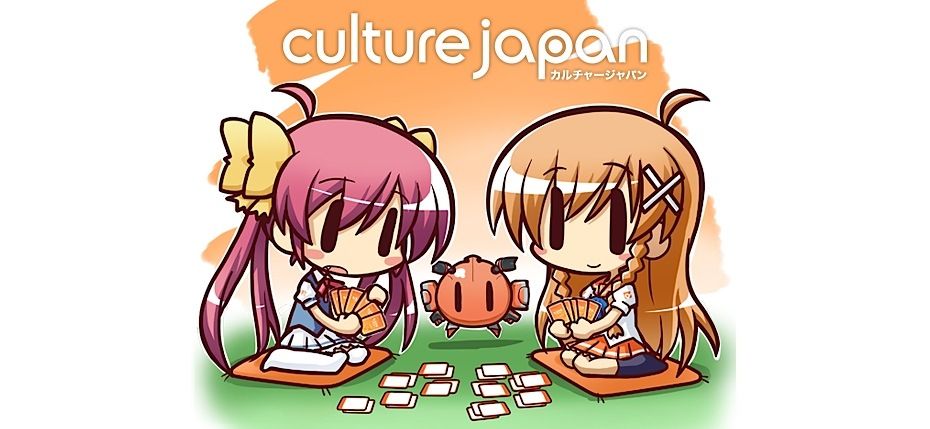Moekanji
What is Moekanji?
Moekanji is a set of 87 illustrated cards to help you learn First Grade Kanji which include the “On” and “Kun” readings written in hiragana. First Grade Kanji is what elementary school children in Japan first learn. Retail price is 2500 yen but many retailers are discounting up to 20% ^o^
My mascot characters Mirai Suenaga, Haruka Suenaga and Kanata Hoshikawa taught us hiragana in the first series Moekana and now they are joined by Eiji Seiun, Retrokyu and our new character Kizuna Yumeno who make a couple of appearances too - all adorably illustrated by the Japanese illustrator Ikkyuu-sensei.
Once again I'm working with the hobby maker Good Smile Company to bring you Moekanji.
Learn Japanese kanji the fun and moe way with Moekanji
Through my own experience of learning Japanese, I wanted to make Japanese learning more fun and developed the Hiragana learning series called Moekana . Thanks to you, we sold tens of thousands of Moekana packs worldwide.
Many of you asked for something to help you learn Kanji too - so here it is - Moekanji! .
Kanji are the Chinese characters used in the Japanese language which you need to learn if you want to be proficient in the lingo.
Many of you asked for something to help you learn Kanji too - so here it is - Moekanji! .
Kanji are the Chinese characters used in the Japanese language which you need to learn if you want to be proficient in the lingo.
Product Details
- Product Name: Moekanji (もえ漢字)
- Series: Culture Japan
- Material: Card
- Card Size: 88mm x 63mm
- Pack Size: 90mm x 65mm x 34mm (170g)
- Specifications: Each pack of Moekanji contains 87 cards. Every pack contains the same set of cards.
- Category: Japanese language flash cards
- Retail Price: 2500yen (includes tax)
- (info for retailers) Packs per carton: 40 (each carton contains 10 boxes of 4 packs)
- (info for retailers) Carton size: 287mm × 447mm × 100mm (7000g)
- (info for retailers) JAN CODE: 4562360860015
- Release Date: 2013/05
- Released by: Culture Japan
- Ages: 6 and up.
- Made in Japan
What's Included
- 80 Kanji Learning Cards - Each card has a unique illustration and example for learning the complete set of first grade Kanji
- 5 Special Character Cards - Collectible cards featuring the mascot characters of Culture Japan and their profiles
- 1 Kanji List Card - A full list of all 80 Kanji characters, good to carry around and check back to see how many new Kanji characters you can remember
- 1 Instruction Card - An example card with annotations to explain how to use Moekanji for learning.
Buy Now!
Pre-order will be available soon at the following retailers - will update this list as data gets propagated through the distributors.
- AmiAmi
- Hobby Search
- J-List
- HLJ
- Toy Coin (convenient for Singaporeans)
- Little Akiba (convenient for Malaysians)
- Amazon Japan
- Goodsmile Company
- Kinokuniya
Here are all the cards in the Moekanji pack.
This is the front and back of the instruction card that comes with each pack.
As you can see, knowledge of the basic Japanese syllabary hiragana is required to benefit from Moekanji. If you have not done so already, you can learn hiragana with Moekana.
I was considering showing the readings in romanized format but came to the conclusion that there is not much point learning kanji if you are not going to bother learn hiragana. Also, although Moekana was developed as a product aimed at foreigners learning Japanese, many Japanese parents bought Moekana for their kids to learn Hiragana and it even became the 2nd best selling anime product on Amazon Japan. Therefore, I've decided to keep the "kun" and "on" readings in hiragana - it caters for domestic folks in Japan and forces you to learn hiragana before you attempt kanji - because there is not much point learning kanji without hiragana!
And if you are wondering what "kun" and "on" readings are, Wikipedia has a thorough explanation on the differences in classification. But very simply put, they are just different ways of reading the same Kanji depending on the situation.
There are many flash cards on the market that are packed with information like Kanji stroke order and a barrage of compound words. Based on my own experience of learning Kanji, I felt that learning stroke order from the start slows down the learning of Kanji. Also, a barrage of compound words is not useful when you are just starting out to learn that kanji!
Moekanji follows the original design elements of the successful Moekana and focus on what you need to get up and running as soon as possible while fusing Japanese learning with Moe culture.
This photo shows the back n front of the Kanji List Card. The card lists all the kanji that Moekanji covers which are the First Grade Kanji that all elementary school kids learn in Japan.
Keep this card in your wallet and look at it when you have downtime waiting for a bus or train - I used to do something similar when I was learning Japanese.
Keep this card in your wallet and look at it when you have downtime waiting for a bus or train - I used to do something similar when I was learning Japanese.
Mirai so cute in the Tanabata card. I love the "Big" card too ^^;
Lets take a lookie at some of my fave cards. You will notice that the illustrations on Moekanji are packed with much more detail than Moekana.
As you can see from the layout of each card - you need to know hiragana to learn Kanji. You are not going to be able to learn Kanji effectively if you do not understand hiragana. Hiragana however is easy to learn especially with Moekana.
In some of the cards you will see the kiddy versions of our girls too.
The top left of the card displays the Kanji and the top right displays a kanji compound example.
The bottom of each card displays the Kun and On readings.
I designed these cards so that we can use the same illustrations as enter and exit signs just like we did at Culture Japan Con ^^
Kizuna Yumeno also makes an appearance in Moekanji.
Moekanji also includes official collaboration cards - these ones with Yuzusoft and Super Sonico.
These two cards feature a traditional Japanese rice paddy and a Matsuri festival.
A Japanese pagoda like the one in Asakusa and some Cultural Festivities.
Traditional Japanese footwear and a rickshaw.
Japanese bank notes and the other card shows how shellfish are traditionally collected from the sea.
Kimono MIrai enjoying some Japanese green tea by some Bamboo thicket and Mirai getting married?!
I designed these cards so that the illustrations could be used on toilets ^^;
And here are the main characters that are featured in Moekanji - Mirai Suenaga, Haruka Suenaga, Kanata Hoshikawa, Retrokyu and Eiji Seiun.
The back of the character cards have a profile of each character.
These two cards of Kizuna Yumeno and Chitose Shirasawa are not included in the pack and can currently only be obtained at the cons that we attend worldwide.
These are given away free with various purchases at our booths.
These are given away free with various purchases at our booths.
Here is an example of how Moekana works with Moekanji - the bottom row of Moekana cards spells out the Moekanji reading at the top.
Same here - Moekanji forces you to learn Hiragana and thus learn to speak Japanese quicker.
And this is how I started to learn kanji many many moons ago. I wrote down all the kanji I needed to learn and stuck these A3 sheets all over my walls at home.
At the time, I dropped the learning of Kanji stroke order as I wanted to learn as many as soon as possible.
If you are serious about learning Japanese then check out this post where I talk about all the techniques that I used to learn the lingo.
At the time, I dropped the learning of Kanji stroke order as I wanted to learn as many as soon as possible.
If you are serious about learning Japanese then check out this post where I talk about all the techniques that I used to learn the lingo.
And if you are here for the first time wondering whether my level of Japanese is up to par to be developing Japanese learning products - I guess its good enough to work for the Japanese government ^^;
This is Moekana which is available now. Do remember that you need to understand hiragana if you are going to use Moekanji for learning Kanji.
The card quality of Moekanji is the same as Moekana which is the same as the many Japanese trading cards on the market - we use the same factories.
The card quality of Moekanji is the same as Moekana which is the same as the many Japanese trading cards on the market - we use the same factories.
Moekanji is part 2 of our Japanese learning series which compliments Moekana.
Now that you have Moekanji (or and Moekana) you may want something to protect your preciousssssss. How about these Moekana and Moekanji Deck Cases?
You can even fit the whole box of Moekanji in the case - it fits like a glove!
This is the Moekana version.
And this is the back of the Moekana version.
And here is the Iizuki version illustrated by Iizuki Tasuku-sensei.
These cases are currently available at conventions that we attend. For the rest of this year we plan on attending AFA Indonesia, AFA Singapore, Comic Fiesta and will carry a limited amount of the cases.
Kinokuniya Los Angeles and Kuala Lumpur also carry the cases. Below are the contact details of Kinokuniya - contact them to see if they ship internationally.
Kinokuniya Los Angeles Store
123 Astronaut Ellison S Onizuka St Suite 205
Los Angeles, CA 90012 (map/directions)
Phone: 213-687-4480/ Fax: 213-621-4456
los_angeles@kinokuniya.com
Hours: Daily 10:00AM - 8:00PM
123 Astronaut Ellison S Onizuka St Suite 205
Los Angeles, CA 90012 (map/directions)
Phone: 213-687-4480/ Fax: 213-621-4456
los_angeles@kinokuniya.com
Hours: Daily 10:00AM - 8:00PM
Kinokuniya Kuala Lumpur Store (Malaysia) Sdn. Bhd. (181998-D)
Lot 406-408 & 429-430
Level 4, Suria KLCC
Kuala Lumpur City Centre
50088 Kuala Lumpur
Tel: 03-21648133
Fax: 03-21628599
Opening hours:
Monday to Sunday
10am to 10pm
Lot 406-408 & 429-430
Level 4, Suria KLCC
Kuala Lumpur City Centre
50088 Kuala Lumpur
Tel: 03-21648133
Fax: 03-21628599
Opening hours:
Monday to Sunday
10am to 10pm
As for the rest of the world - we plan to open up our e-commerce site but lack of resources and priorities could push the rollout to next year ><
If you are still not sure whether Moekanji can help you with your studies then maybe just ask a friend who already has some - they join the tens of thousands of people worldwide who are using the series to learn Japanese the fun way ^o^
